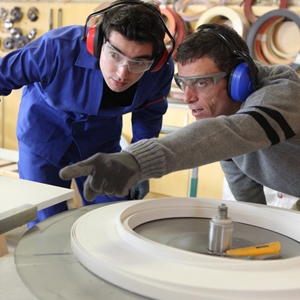There are many steps that go into finding the right apprentice for your business’s needs.
Some of these are quite simple, with services like Apprenticeship Central making it easy to access a wide pool of potential candidates. This service allows you to create an employer profile and can then help you connect with apprentices across Australia.
Apprenticeship Central also has helpful online tools, like a position description builder, which make this process as straight forward as possible.
However, once you have found the right employee, the real work begins. As an employer, you will need to make sure you have the processes in place to get the most from your new hire.
One of the most important considerations at this point is the supervision your apprentice will need over the lifetime of their work with your company.
Unless your workplace is very small, chances are you will be appointing a dedicated mentor to handle the everyday training and oversight of your apprentice. An ideal ratio for a workplace is going to be one fully qualified worker for every one apprentice.
The people you have to oversee the training of new apprentices will also need more flexibility in their own work. As an apprentice needs to be supervised every time they undertake potentially hazardous work, you may find established workers are unable to handle the same workload they are used to.
The specific level of supervision required will depend on the type of work your company undertakes. If you want more specific advice on how you can get the right levels of supervision for your work, make sure you contact an apprenticeship service like BUSY At Work. They will be able to provide greater information about the amount of supervision needed in your industry.
Finally, make sure that you, your apprentice and their supervisor within your business are all aware of the necessary skills needed to pass their chosen course of study.
Every apprenticeship will require specific projects to be completed and a body of work produced which demonstrates their skills and allows them to qualify. Keeping on top of these requirements will make the process run smoothly for everyone involved in supporting your apprentice.
Your apprentice will also likely need to collect a portfolio of work over the course of their studies to demonstrate their capabilities. Making sure that this process is integrated into the supervision of your newest workers can ensure your apprentices have the smoothest journey to their qualification.

